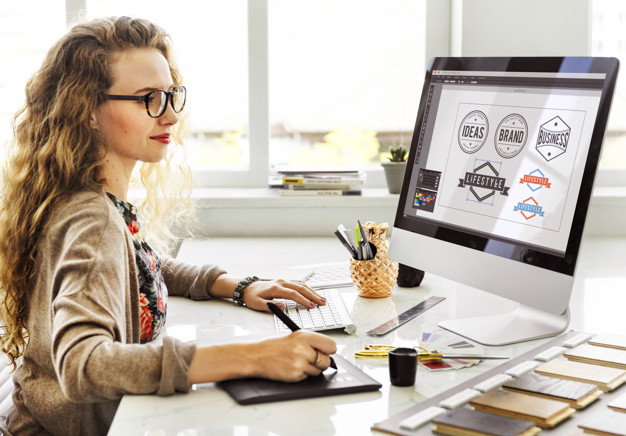
Creating your logo can be very exciting. You can pour all your creativity into crafting the perfect design that will give your business its brand identity. Many startups and small businesses invest in designing their logos for a couple of reasons. Perhaps hiring a professional graphic designer is too costly, or they want to create their logo from scratch on their own. Whichever path you decide to take, it can help to visit a couple of logo design programs that can guide you in creating the ideal logo for your business.
Gather Some Inspiration
Like in any project or business venture, you need the inspiration to turn that vision into reality and succeed. A great way to feel inspired and acquire ideas for your logo is learning to spot attractive design elements. You can look at already existing logos from well-known companies and brands and get some ideas from them. In addition, you can cut out some images from your favorite magazines or gather some icons and logo templates via Google search and create a web album. After you have got a couple of photos you like, try to select a couple and analyze their form and shape to guide you in creating your original design.
Create from Scratch or Use a Template
Most aspiring entrepreneurs and graphic artists use a logo maker program to create their logo designs from scratch. Alternatively, design-ready templates are available for individuals who need a starting place to work off to get the ideas rolling in and modify the design with free brainstorming tool. It all depends on how artistically inclined you are. Creating a logo from scratch seems like the right decision for you. There are plenty of drawing programs online you can use to get started on creating the first draft. But if you are a beginner or a novice artist, beginning with a template can come in handy as you find the ideal shape, colors, and symbols you like.
Choosing the Right Software
Many programs are designed for creating logos, but not all of them are ideal. It’s recommended to abstain from programs that are not designed for high-quality images, such as Microsoft Paint or PowerPoint. The more you resize or edit a logo in these programs, the clarity of the images decreases. It is suggested to work with vector files that are scalable (they can be resized and not lose quality). Common vector file types include ai, eps, and SVG. These file types allow you to create transparent backgrounds so you can display your logo on any platform.
If you are serious about creating a logo and trademarking it in the future, use professional software such as Adobe Illustrator, Photoshop, CorelDraw, or GIMP. In addition, you can utilize a file conversion program to convert a non-vector file into a vector file so its original design is straightforward and its quality is retained. It is very helpful when alternating the different dimensions and aspect ratios of an image not to affect image quality.
Using Basic and Complex Shapes
Use shapes to your advantage when creating your logo, and don’t shy away from figures that appeal to you. Graphic designers use all kinds of conditions to perfect a logo and even blend shapes to achieve new forms. Consider symmetry, proportions, angles, curves, and lines involved, as these elements will assist you in fine-tuning your logo to a final draft.
Find Your Color Palette
After you are comfortable with a shape and design for your logo, it’s time to start thinking about the colors you want to use to represent your brand. You can use several colors at a time, or even just a few depending on how colorful or minimalistic you want your logo to be. Colors are expressive and capture people’s attention and are one of the first aspects of a logo that people notice.

![HubSpot's 2025 State of Blogging Report [Data from 500+ Marketers]](https://www.liveseo.com/wp-content/uploads/2025/02/HubSpots-2025-State-of-Blogging-Report-Data-from-500-Marketers.webp-300x300.webp)


